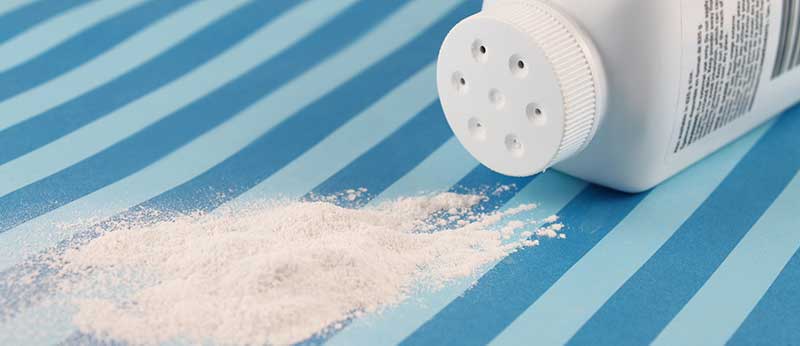J&J Has Been Lying About Asbestos in Talc For Decades

In a shocking new expose, internal documents going back more than 40 years show Johnson and Johnson not only knew about carcinogenic asbestos in their talc products but actively covered-up this fact. According to their most recent quarterly report, the company known for their "baby-friendly" products currently faces more than 11,700 lawsuits related to their talcum powder product lines.
The lynchpin for each of these suits will be conclusively demonstrating a link between baby powder and various forms of cancer - such as ovarian cancer or mesothelioma - an endeavor which previously met with mixed results. These new documents may dramatically shift the balance of judgments against J&J, since they show the company's figurehead product line was contaminated with a known carcinogen.
Did talcum powder contribute to your cancer? Talk to a lawyer for a free case reviewThe Talc Asbestos Cover-Up
The earliest documentation of asbestos in Johnson and Johnson's talc comes in the form of a 1957 research report originally commissioned in an effort to maximize the softness of baby powder. In the report, investigators noted the presence of tremolite fibers, aka asbestos. At the time, these fibers weren't known to be carcinogenic and thus might not have raised eyebrows beyond their undesirable contribution of grit to an otherwise silky soft powder.
In 1969, one of J&J's own physician executives pointed out a link between the fibers found in their baby powder and the increasing incidence of certain kinds of cancer. He cautioned his colleagues, "It is not inconceivable that we could become involved in litigation in which pulmonary fibrosis or other changes might be rightfully or wrongfully attributed to inhalation of our powder formulations."
Providing the FDA favorable results showing no asbestos and withholding or failing to provide unfavorable results, which show asbestos, is a form of a misrepresentation by omission.
ReutersIn response to mounting evidence of the carcinogenic nature of asbestos fibers, J&J engaged in multiple tactics designed to minimize public knowledge of asbestos in their baby powder as well as any related research they viewed as negative. This included withholding all lab reports indicating the presence of asbestos fibers in their products from the FDA and several attempts to dumb-down the FDA's testing requirements. Internal memos also documented their strategy to "neutralize or hold in check data already generated by investigators who question the safety of talc."
Both in court and in the media today, J&J maintains the position that their products did not contain asbestos, despite their own contradictory internal documentation. Their expert witnesses have even gone so far as to claim the forms of asbestos found were non-carcinogenic. Though there are multiple forms of asbestos-like fibers, experts agree that the non-carcinogenic form are always accompanied by their cancer-causing relatives.
Talcum Powder Cancer Lawsuits: Past & Future
Deanne Berg filed the first talcum powder lawsuit against Johnson and Johnson, alleging their baby powder caused her ovarian cancer. She ultimately turned down a $1.3 million settlement offer, because she would not sign the required confidentiality agreement. Since then a number of high profile talcum powder lawsuits have yielded substantial judgments against J&J, totaling more than $724 million. The most recent judgment in July 2018 involved 22 women who were each awarded approximately $213 million. J&J lost their first bid to overturn that verdict in late December 2018.
The most interesting chapter in this saga is likely still to come, as thousands of lawsuits are still in process and will now benefit from these newly released and fairly damning internal documents. With mounting evidence against them and a swell of public outrage, J&J may find it easier to settle these lawsuits moving forward.
If you or a loved one were diagnosed with cancer after years of using Johnson and Johnson's talcum powder products, you should speak with an experienced talcum powder lawyer today.
